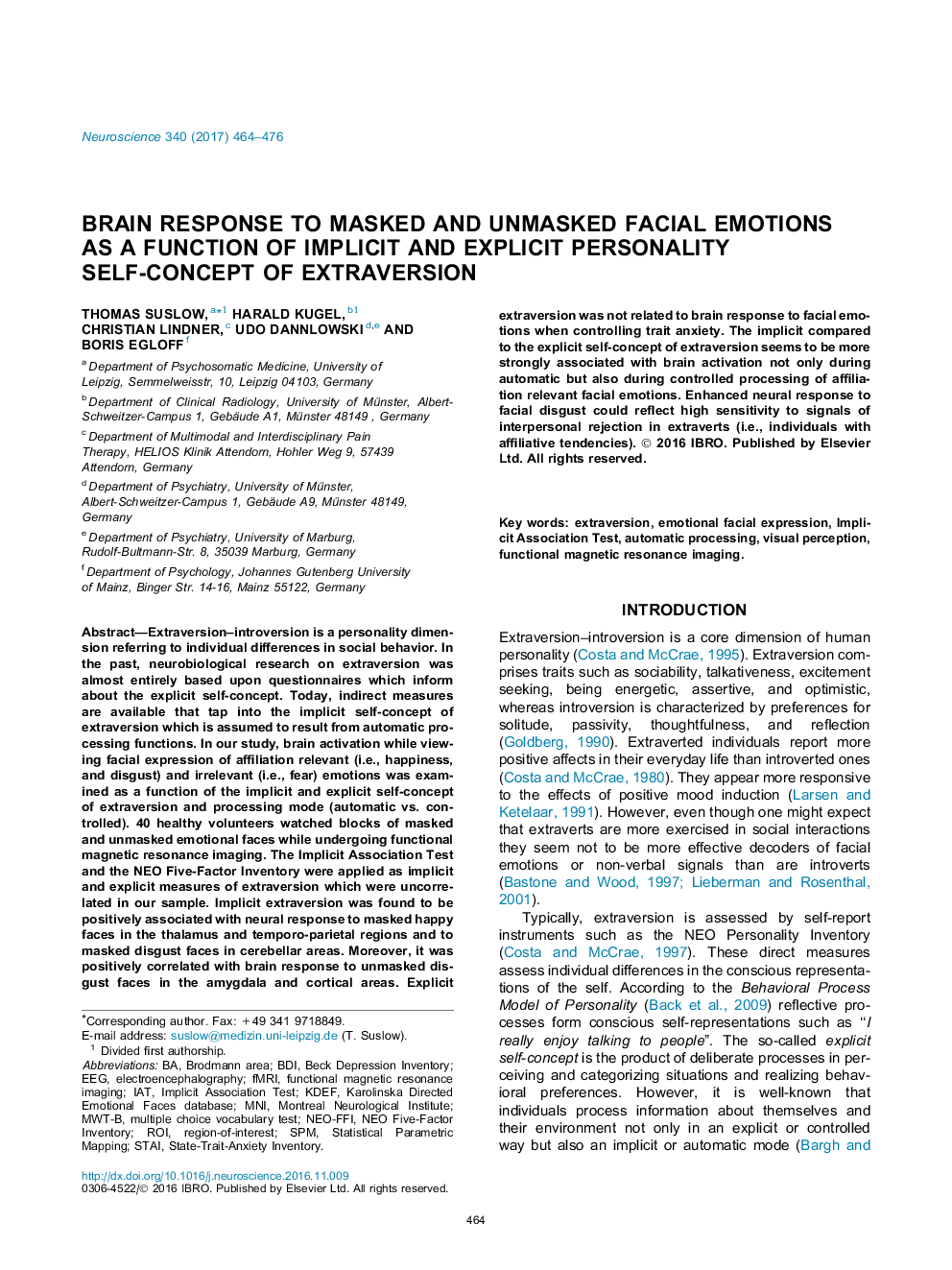| کد مقاله | کد نشریه | سال انتشار | مقاله انگلیسی | نسخه تمام متن |
|---|---|---|---|---|
| 5737528 | 1614736 | 2017 | 13 صفحه PDF | دانلود رایگان |
- Automatic and controlled processes of visual emotion face perception were examined.
- Emotion face perception was investigated under high intensity of stimulation.
- Implicit and explicit measures of personality were used to assess extraversion.
- Affiliation-relevant and affiliation-irrelevant emotional facial expressions were presented.
- Implicit extraversion was more strongly related to brain response to affiliation-relevant faces than explicit extraversion.
Extraversion-introversion is a personality dimension referring to individual differences in social behavior. In the past, neurobiological research on extraversion was almost entirely based upon questionnaires which inform about the explicit self-concept. Today, indirect measures are available that tap into the implicit self-concept of extraversion which is assumed to result from automatic processing functions. In our study, brain activation while viewing facial expression of affiliation relevant (i.e., happiness, and disgust) and irrelevant (i.e., fear) emotions was examined as a function of the implicit and explicit self-concept of extraversion and processing mode (automatic vs. controlled). 40 healthy volunteers watched blocks of masked and unmasked emotional faces while undergoing functional magnetic resonance imaging. The Implicit Association Test and the NEO Five-Factor Inventory were applied as implicit and explicit measures of extraversion which were uncorrelated in our sample. Implicit extraversion was found to be positively associated with neural response to masked happy faces in the thalamus and temporo-parietal regions and to masked disgust faces in cerebellar areas. Moreover, it was positively correlated with brain response to unmasked disgust faces in the amygdala and cortical areas. Explicit extraversion was not related to brain response to facial emotions when controlling trait anxiety. The implicit compared to the explicit self-concept of extraversion seems to be more strongly associated with brain activation not only during automatic but also during controlled processing of affiliation relevant facial emotions. Enhanced neural response to facial disgust could reflect high sensitivity to signals of interpersonal rejection in extraverts (i.e., individuals with affiliative tendencies).
Journal: Neuroscience - Volume 340, 6 January 2017, Pages 464-476
